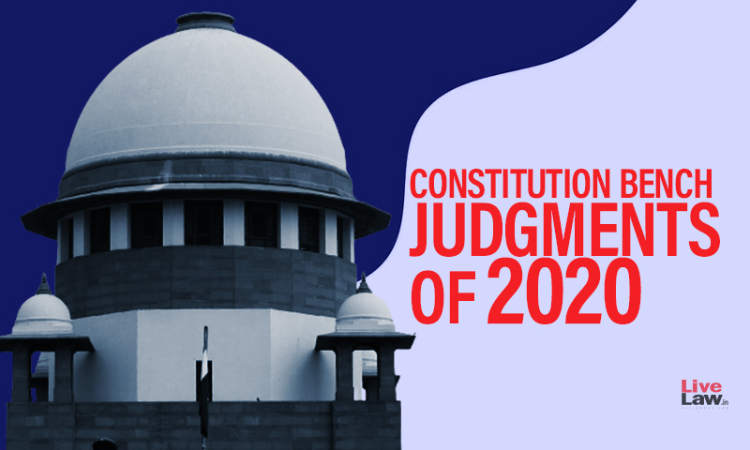Next Story
25 Dec 2020 5:39 PM IST
There were 11 Constitution Bench judgments/orders of the Supreme Court in 2020. Due to the advent of Covid-19 pandemic, many of the hearings took place through video conferencing mode. Anticipatory Bail Cannot Be Limited To A Fixed Period Except In Special And Peculiar Circumstances[Sushila Aggarwal And Others V/S State (NCT Of Delhi)]The Supreme Court held that anticipatory bail should...

